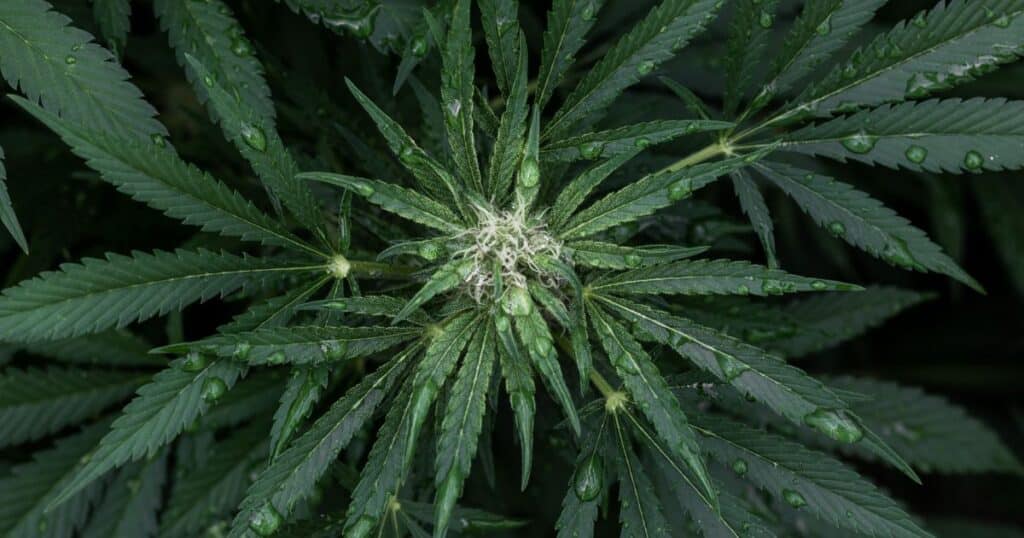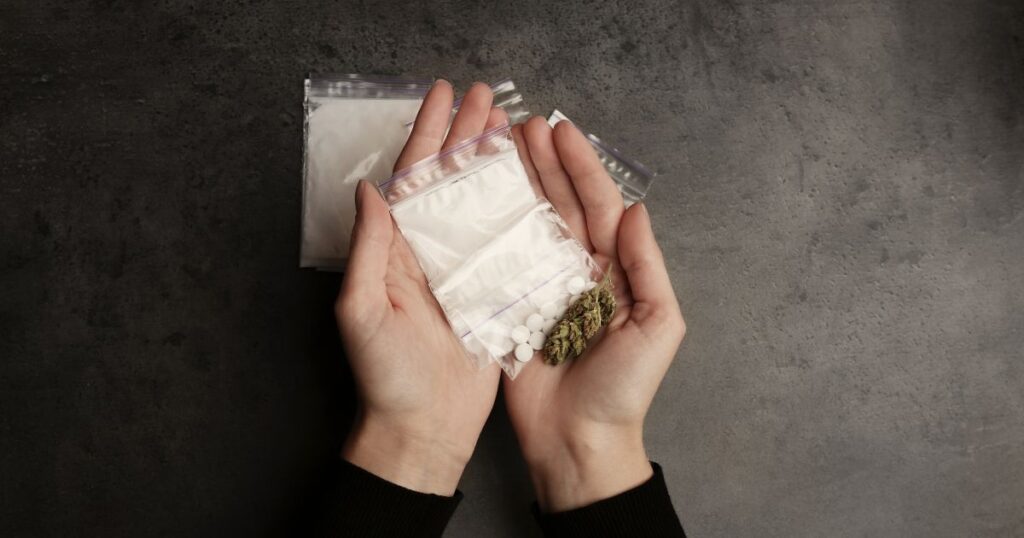In a world where the opioid crisis has reached epidemic proportions and traditional methods of addiction treatment are not always effective, alternative approaches are gaining attention. One such approach is the use of cannabis in addiction recovery.
This topic was recently highlighted in an interview with country music star Jelly Roll, where he openly discussed how marijuana has been instrumental in keeping him sober from substances like Xanax, cocaine, and codeine.
Jelly Roll’s Testimony, Marijuana as a Sobering Aid
Jelly Roll, a prominent figure in the country music scene, has been candid about his struggles with addiction. In a recent interview with Taste of Country, he shared how marijuana has played a crucial role in his journey to sobriety. He admitted that without marijuana, he would likely still be using substances like Xanax, cocaine, and codeine.
“I get in trouble for this all the time, but my stance on marijuana will always be the same: I believe marijuana has helped me in so many regards, especially with my anxiety. This is a hot-button topic, but truly, marijuana has kept me sober,” Jelly Roll explained. “I think a world without weed means Jelly Roll’s drinking codeine, popping Xanax, and snorting cocaine again. But in a world with weed, I’ll be alright.”
He also touched on the diversity of addiction recovery paths, acknowledging that some of his friends in recovery programs are against any mind-altering substances. “I have so much respect for those people. That’s just not how my sobriety worked out,” he added.
Cannabis in Addiction Recovery
Jelly Roll’s experience is not an isolated case. Many individuals have turned to cannabis as a tool in their addiction recovery journey. While the topic remains controversial, growing pre-clinical and clinical evidence suggests that cannabis can play a significant role in easing withdrawal symptoms, reducing cravings, and preventing relapse.
Other figures in the music industry and beyond have also advocated for the use of marijuana in their sobriety journeys. For instance, musicians like Melissa Etheridge and Willie Nelson have openly discussed how cannabis has helped them manage pain, anxiety, and addiction recovery.
Melissa Etheridge, a cancer survivor, has been vocal about her use of medical marijuana for pain management and emotional well-being. She believes that cannabis is a safer alternative to opioids and other prescription medications. Similarly, Willie Nelson credits marijuana for helping him quit smoking cigarettes and for its therapeutic benefits.
Medical Marijuana’s Impact on the Opioid Crisis
The opioid overdose epidemic is one of the most severe public health crises in U.S. history. According to studies, the implementation of medical marijuana laws has been associated with a reduction in opioid prescriptions and a decrease in opioid-related doctor visits and fatalities.
A study published in the Journal of Health Economics in 2020 analyzed data from 2010 to 2015 and found that states with medical marijuana laws saw significant reductions in opioid prescriptions filled through Medicare Part D.
Another study presented at the 2022 Annual Meeting of the American Academy of Orthopaedic Surgeons found that providing patients with osteoarthritis and chronic back pain access to medical cannabis could decrease or eliminate the need for opioids for pain management.
Additionally, a federally funded study published in the International Journal of Drug Policy surveyed individuals who used cannabis and unregulated opioids over two years. The findings suggested that marijuana could be an effective harm-reduction tool for those struggling with opioid misuse.
Schedule I Categorization Has Stiflied Research
Despite the promising evidence, several barriers hinder the widespread adoption of cannabis in opioid use disorder (OUD) treatment. These include the legal status of cannabis as a Schedule I controlled substance, which limits the scope of federal research funding at the time of these studies.
Moreover, the single source of cannabis for federally funded research in the U.S. does not reflect the variability and potency of cannabis products available in state-regulated markets.
However, the recent decision of the government to move cannabis into the Schedule III category will open up the realm of cannabis research tremendously, and we could see a surge in cannabis-related studies.

Jelly Roll’s candid discussion about how marijuana has helped him stay sober from substances like Xanax, cocaine, and codeine highlights the potential role of cannabis in addiction recovery. While his experience is unique, it aligns with a broader trend of individuals turning to cannabis as a tool in managing addiction and promoting sobriety.
As the opioid crisis continues to claim lives, the need for novel strategies to combat opioid misuse, overdose, and death becomes more urgent. Growing evidence suggests that marijuana could be a valuable addition to traditional addiction treatment methods.
However, more research, open dialogue, and policy changes are needed to fully understand and leverage the potential of cannabis in addiction recovery. By sharing experiences like Jelly Roll’s and advocating for further investigation, we can continue to explore the benefits of cannabis and support those on their journey to sobriety.


















